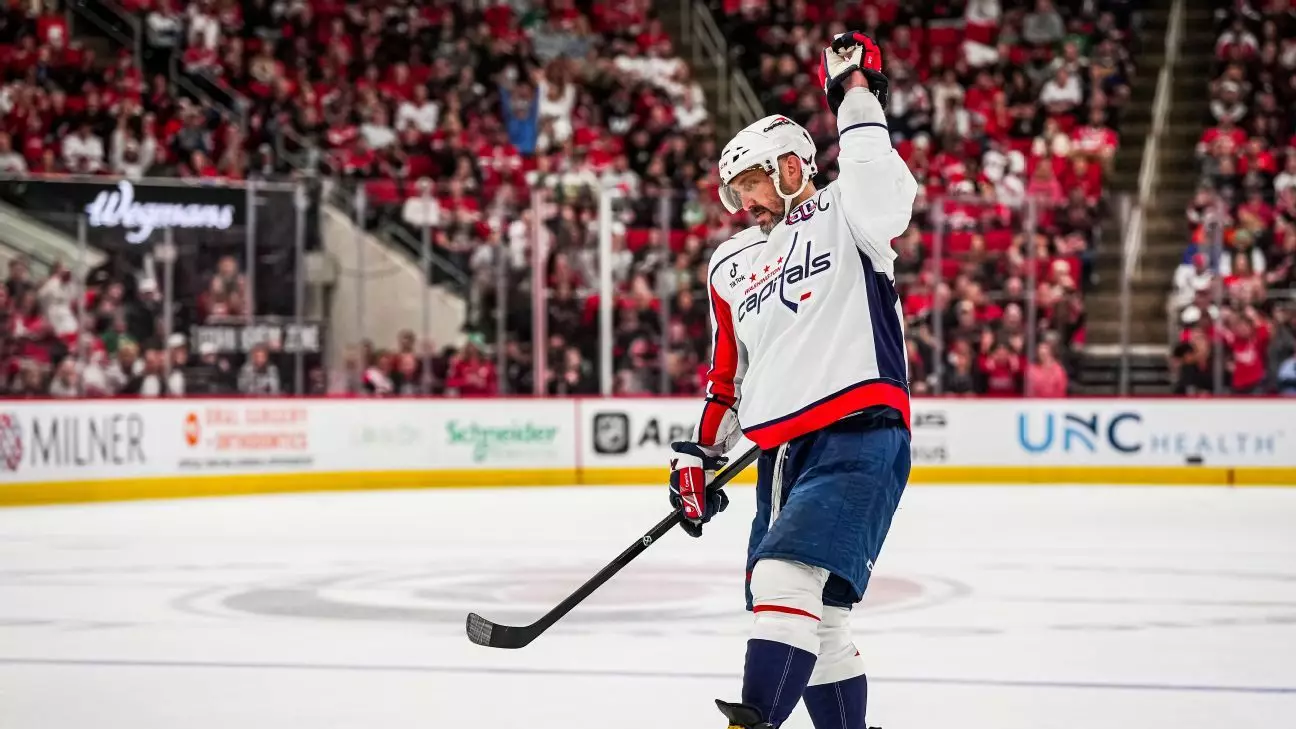In the world of sports, records serve as the formidable benchmarks that define an athlete’s legacy. For Washington Capitals captain Alex Ovechkin, the journey to surpass Wayne Gretzky’s seemingly insurmountable NHL goal record isn’t merely a personal vendetta; it’s a captivating saga that combines history, nostalgia, and the relentless march of time. With Ovechkin scoring his 892nd goal in a recent match against the Carolina Hurricanes, the narrative thickens—he is just three goals shy of dethroning ‘The Great One’.
What’s remarkable isn’t just the number; it’s the man behind the milestone. Ovechkin, at 39 years old, stands as a testament to skill and perseverance. Scoring 39 goals this season after overcoming a significant injury, he’s not simply chasing Gretzky’s record; he’s rewriting the narrative on age and athleticism. In a league increasingly dominated by younger talent, Ovechkin exemplifies how experience can translate into performance—and perhaps more importantly, how unyielding willpower can keep a player in the game against the odds.
The Context of the Record
While chasing individual accolades can often be seen as a selfish endeavor, Ovechkin’s pursuit of this record resonates with a broader audience. The spirit of competition—especially in a team sport like hockey—comes with the shared experience of triumphs and failures. This ambition is not just about personal glory; it symbolizes hope and inspiration for athletes of all ages. As he approaches this record, the weight of its significance deepens.
Moreover, Ovechkin’s journey through the NHL has not only been about the numbers. It has highlighted the ever-evolving landscape of the sport itself, reflecting changes in strategy, player development, and athletic training over the years. Many might argue that Gretzky’s record was built during a different era—an era characterized by less aggressive defense and a different style of play. In contrast, Ovechkin’s accolades remind us that records are often as much about the context in which they are achieved as they are about individual talent.
The Flaws in Comparisons
Critics may question the legitimacy of comparing players across different generations—a point that cannot be overlooked. How do we weigh the statistical prowess of Gretzky against Ovechkin’s tenacity? What constitutes greatness in professional sports? Perhaps it’s time for these discussions to evolve.
Ovechkin’s dedication forces us to reconsider who we celebrate as great in the realm of sports. Should we only revere records, or should we also appreciate the unique journeys taken by these athletes? In this light, Ovechkin’s persistence offers something deeper. He inspires the current generation, proving that with enough grit, age is but a number. Regardless of the outcome, his journey is invaluable, enriching the narrative of hockey as a whole.
Ovechkin’s pursuit serves as a powerful reminder that greatness is not solely defined by numbers. Sometimes, it emerges from the stories behind those numbers—stories of resilience, determination, and the sheer human spirit. In a world quick to judge and categorize, Ovechkin’s relentless chase of history provides not just a source of excitement for fans, but a rich tableau on which the very essence of sportsmanship can unfold.

Leave a Reply